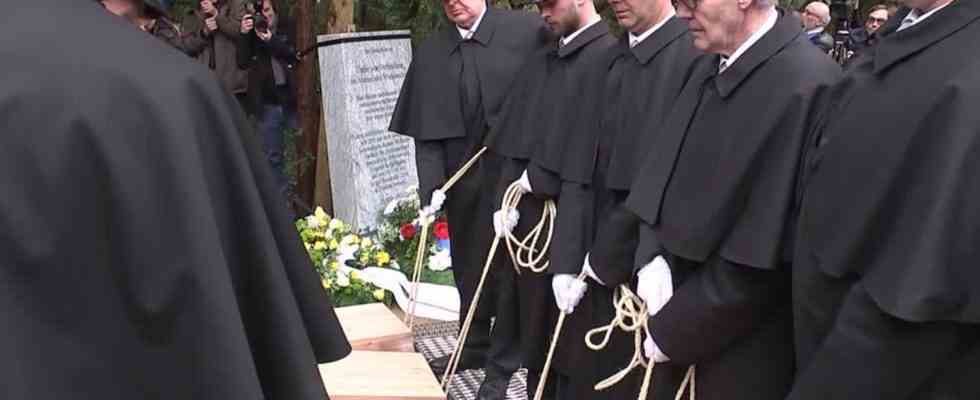STORY: Five small, simple wooden boxes are buried at the Berlin Waldfriedhof Dahlem this Thursday. A moving moment intended to restore peace, tranquility and dignity to the human remains in the tomb. Because there are bones in it that probably come from victims of the Nazi regime. Excavated by archaeologists on the Freie Universität campus. The first fragments were accidentally discovered there during construction work in the summer of 2014. Günter M. Ziegler, President of Freie Universität: “The bones were in a pit on the edge of the site at Ihnestraße 22-24, where the Kaiser Wilhelm Institute for Anthropology, Human Genetics and Eugenics used to be from 1927 to 1945. An institute that is connected, not only with colonial crimes, the ethnological collections there, but also with National Socialist crimes, including a connection to Auschwitz.” A total of around 16,000 heavily fragmented bones were found. According to Ziegler, they probably come from different contexts and were buried in 1945. The individual victims could not be identified. “And it was very consciously decided not to divide the bones with further, for example genetic tests, because that would ultimately also be a racist approach and would now divide things that can no longer be separated. In this respect, these tests are complete.” According to Ziegler, the central councils involved also decided to proceed in this way. Dotschy Reinhardt, Chair of the State Council of German Sinti and Roma in Berlin-Brandenburg: “We don’t know who the people we are burying here today were. However, it is very likely that some of the fragments can be traced back to Nazi victims. The trail leads to the end a collaboration between the former Kaiser Wilhelm Institute and the Auschwitz Birkenau camp doctor, Josef Mengele. Daniel Botman, Managing Director of the Central Council of Jews in Germany “I would like to thank all the mourners here today. They help ensure that the stories of the victims are continued or even told for the first time. Our grief today for the crimes of the past creates the collective memorial sites of tomorrow.” The FU intends to continue its investigations into other collections on this subject. Because the responsibility goes further, according to the university president.

